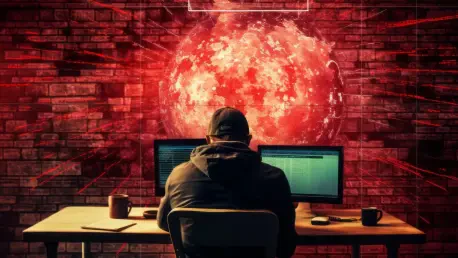In a concerning new twist for international relations, European diplomats find themselves the focus of an advanced cyber-espionage campaign orchestrated by Russia’s notorious hacking group, Cozy Bear, also known as APT 29. Known for their involvement in high-profile cyber-attacks like the SolarWinds hack, Cozy Bear has adopted sophisticated phishing scams masked as social engagement invitations to deploy their new malware. This wave of cyber-attacks has sparked crucial questions about the readiness of European diplomats to defend against such advanced threats.
Cyber Threat Levied by Russia Targets European Diplomats
European diplomats are now targets of a meticulously designed phishing campaign by Cozy Bear. The group uses social engineering tactics, crafting emails to appear as legitimate invitations to events such as wine tastings and diplomatic dinners. These emails contain expertly embedded links that, once clicked, lead to the download of advanced malware, bypassing standard security protocols.
Security researchers have identified that the malware, named Grapeloader, is delivered through cleverly constructed means. An archive file called wine.zip disguises its malicious payload, involving a legitimate PowerPoint executable for DLL side-loading, a hidden DLL stuffed with junk code, and an obfuscated loader DLL to carry out the attack. Grapeloader ensures persistence by altering the Windows Registry and communicating regularly with Cozy Bear’s servers.
Key Moments and Unfolding of the Cyber Campaign
The cyber campaign unfolds through concerted and sophisticated steps by Cozy Bear. Emails designed to deceive are meticulously crafted with compelling subject lines like “Wine tasting event (update date)” and “Diplomatic dinner,” increasing the chances of recipient engagement. If initial emails go unanswered, follow-ups are sent to enhance interaction likelihood.
Expert Insights and Discovery Findings
Experts have revealed detailed insights into Cozy Bear’s methods. The phishing attempts utilize engaging subject lines to entice recipients while embedding links that trigger malware downloads under specific conditions, such as defined times or geographic locations. The malware, Grapeloader, carries out extensive espionage by collecting vital system information and maintaining communication with Cozy Bear’s command servers.
Panel Discussions on Cybersecurity Preparedness
In a series of cybersecurity panels, experts emphasized training and vigilance as critical defenses against such threats. Discussions revolved around the sophistication of Cozy Bear’s tactics and the necessity for comprehensive security training for diplomats. Continuous monitoring for unusual activity and updating defensive strategies were highlighted as pivotal to mitigating evolving cyber risks.
Workshops and Interactive Sessions
Cybersecurity firms organized interactive sessions, offering hands-on training for recognizing and thwarting phishing attempts. Live demonstrations illustrated the intricacies of the malware, showcasing how innocuous-looking links can precipitate elaborate cyber-attacks. Participants engaged actively, learning up-to-date security practices to safeguard sensitive data.
New Technology Unveilings
The event spotlighted cutting-edge cybersecurity solutions designed to counter espionage efforts like those of Cozy Bear. Demonstrations showcased advanced threat detection tools and enhanced encryption technologies essential for securing digital communications. The new technologies demonstrated their effectiveness in proactively identifying and neutralizing threats, underscoring their importance in the modern cybersecurity landscape.
Long-term Implications and Future Directions
The cyber-espionage campaign by Cozy Bear against European diplomats highlights a critical need for enhanced cybersecurity measures across government frameworks. Key takeaways stress the importance of rigorous training programs, continuous technological updates, and robust incident response strategies. The insights gained from the event contribute significantly to understanding contemporary cyber threats and shape future cybersecurity advancements.
In conclusion, Cozy Bear’s ongoing sophistication in espionage techniques calls for a robust and innovative response from potential targets. Agility in adapting to new threats is essential for European diplomats’ resilience against persistent cyber adversaries. This event underscores that cybersecurity remains paramount in maintaining diplomatic integrity and sovereignty.









